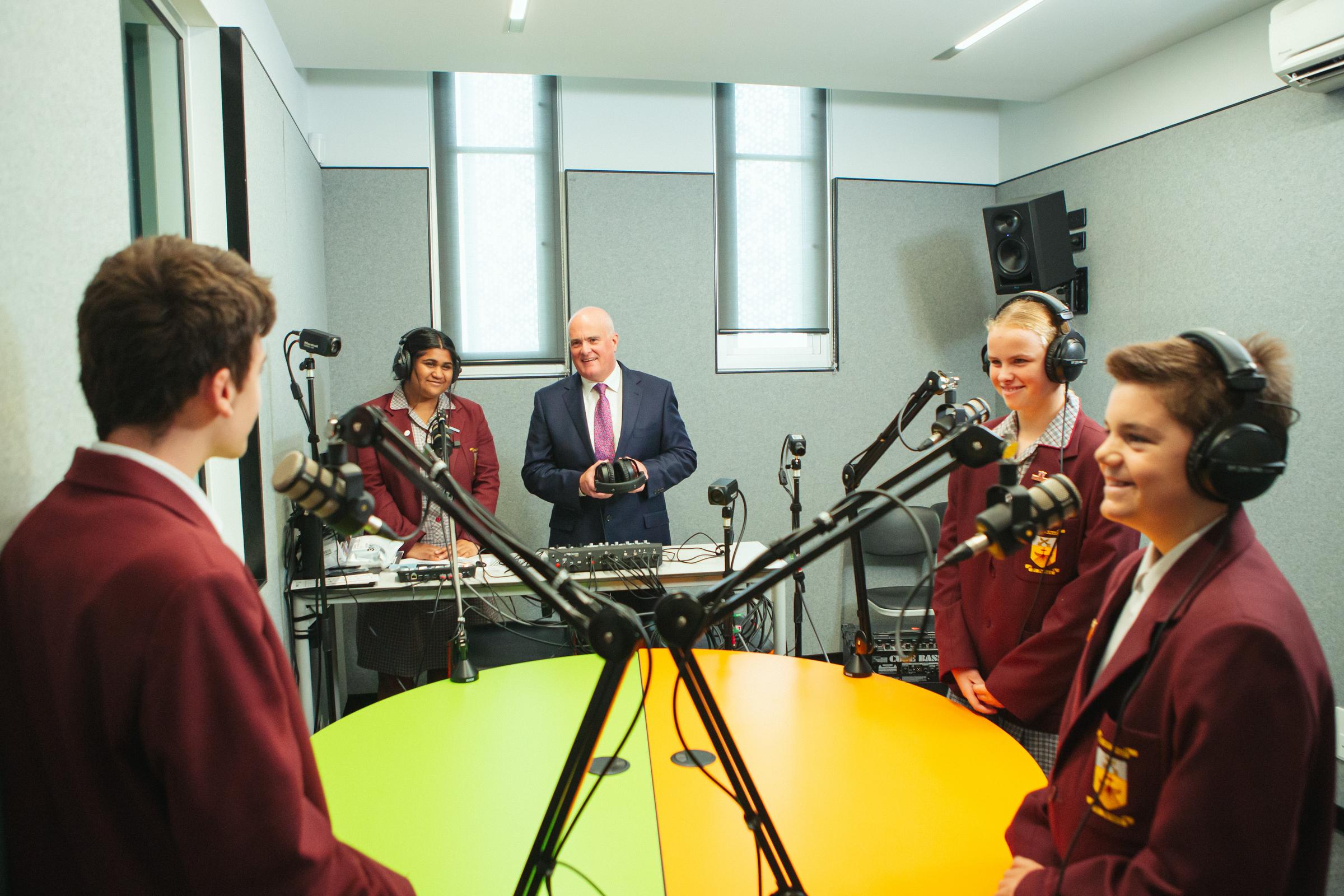From our Principal

Dear Parents, Students and Friends,
Welcome to Term 3. Unfortunately, it was not the welcome we wished to receive. As I write this we await further announcements regarding an extension or not to the current level of restriction. No matter what the announcement parents should be reassured that we are doing all that we can to present a business as usual approach to all aspects of schooling. Evidence of this can be found in the quick turn around achieved to recommence remote schooling, the conversion of Futures Expo into an online and interactive program, production rehearsals continuing with high levels of energy and dedication and subject selection interviews to commence in the coming days. In other words, St. Peter’s College is open for business.
One of the key lessons to a successful remote schooling program is to ensure the maintenance of effective communication channels between home and school. The table below is a reminder of our modes of communication:
| Source | Description |
| Operoo | Usually this information is detailed and provides in-depth guidelines on the how of Remote schooling. Often this is in the form of a letter |
| SMS | Alerts parents to the critical just in time information eg: “Remote schooling commences tomorrow.” |
| Alerts parents to changes to schooling arrangements, provides updated information including changes to events | |
| Website | Has a dedicated COVID-19 page presenting detailed information of our program and the latest COVID rules applying to such things as the uniform shop. Click here to gain immediate access |
| SPACE | Parents can access information through the parent portal on SPACE, our Learning Management system. This is important in gaining updated information around student programs, eg Futures Expo, Student Learning conversations. |
| Student Email | Students are reminded to check their student emails regularly (a minimum 3x per day) to gain updated information regarding their learning program |
I would encourage any parent, or student for that matter who has not “Liked” the St. Peter’s College official Facebook page to do so. In doing this you will gain access to up to the minute information.
Reflection
I was out on my daily walk (one of the 5 reasons to be out of home) last weekend listening to Spotify when the Iconic song “You’re the Voice” by John Farnham popped up. It made me wonder how the lyrics can be a source of inspiration to our young people at this unpredictable time. The lyrics in question are:
We have the chance to turn the pages over
We can write what we want to write
We gotta make ends meet, before we get much older
We're all someone's daughter
We're all someone's son
How long can we look at each other
Down the barrel of a gun?
You're the voice, try and understand it
Make a noise and make it clear
Oh, whoa
We're not gonna sit in silence
We're not gonna live with fear
Oh, whoa
So how can we link these lyrics to the current state of play? My message to students is that they are “the voice”, not a voice nor any voice, our students are “the voice”. How do our students exercise this? First and foremost, it is about being the best learner they can be, whether this in the virtual classroom or face-to-face setting. It is incumbent on each and every student to be fully engaged in the classroom and this means bring a voice, their voice to those learning forums. No longer is it okay to sit in silence.
Mental Health Tip
I was reading an article the other day titled: “How to deal when your mental bandwidth is totally maxed out”. It spoke of brains being totally “maxed out” during this pandemic. The author interviewed Peta Sigley, Co-founder of resilience platform Springfox, who stated, “COVID has really ratcheted up the gear. In terms of bandwidth, we're finding people are procrastinating. They're worrying about making decisions…they're not as accurate. They're slower. There’s a whole heap of stuff going on…” she stated, “Some of these decisions for us include things like: Am I going to work or am I not going to work? What does that mean for my job security? What does that mean for my financial security? Am I going to have to home school children again? Where am I wearing a mask where I'm not wearing a mask?..”. Add to that feeling isolated, feeling lonely, even in a really busy house, losing that sense of self. Sigley suggests that one of the biggest and best things to do to prevent overload is to say “No”.
Below are some suggested tips to maintain a balance and prevent overload:
1. Find Balance
Make sure that you have time to exercise, to connect, but also to recover and clear your mind of the mental loads we’re so often carrying on a daily basis.
2. Self-reflection
Find time for self-reflection. Ask yourself questions about what’s working, what isn’t, what’s important and what else you’d like to be able to do in your life.
3. Segment your day
Put up some constraints and understand where we are spending time and what we can do to set a time for yourself.
4. Progress not perfection
As soon as we start getting to that perfectionist line of thinking, “I should do this. I must do that”, we set ourselves up for failure. Accept we’re going to make mistakes and get things wrong and don’t use your remaining, precious bandwidth with worrying about getting everything right.
Stay safe and Stay well
Mr Chris Black
Principal

